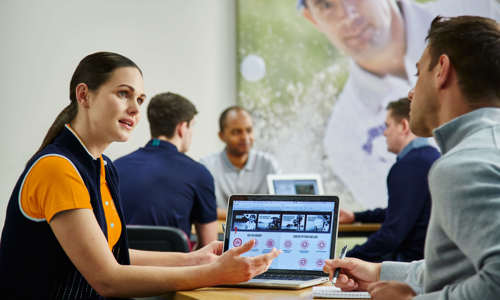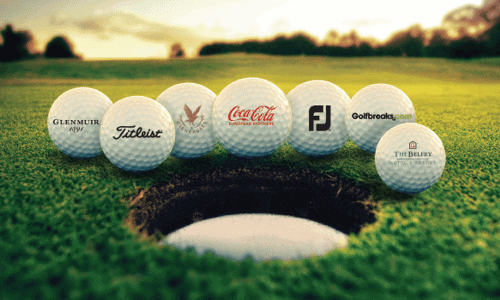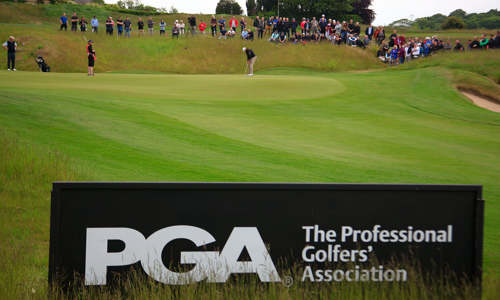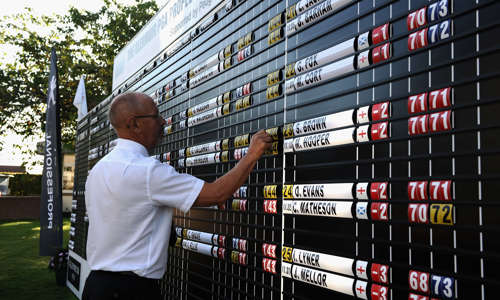FEATURE - Sue Anstiss: “Welcome women. Make golf accessible. Make it enjoyable. Sport’s about joy.”

27/07/2022
Sue Anstiss MBE, who is a Special Adviser in Women’s Sport at SMS, has driven change in women’s sport for over 30 years. Here she considers, from her external perspective, the challenges and opportunities for golf.
Where do you think women's sport is now compared to your early experiences?
It’s transformed, really. I look back and think even when I was growing up, and then in my early career, and my filter wasn't really aware that we only mainly supported men's sport and men's teams. I look back and think I never really noticed that at the time. So yes, it's massively changed. But primarily in the last 10 years, I would say, we've seen the biggest shift in terms of the momentum of major events and big changes that have happened.
And what can you point at as a tipping point?
I think we'd like to say it was London 2012, and definitely lots came from that. It’s talked about as the women's games because it was much more equal. That’s when people began to talk about it seriously, when funding came into women’s sport, in terms of semi-professionalism and professionalism for rugby, cricket and football. I feel like there's an unstoppable momentum now because so much has changed. In the 2019 FIFA Women's World Cup there were 11.7m people in the UK watching the semi-finals so you do feel like we're moving in the right direction. Even with Covid I don't think we're going to go backwards now.
Can you give us an example of a sporting success story, that perhaps golf could aim at?
Football, I guess, is the one we cite because it is the global sport. I saw some research that said 46% of global adults put it as their favourite sport. And so there is a reason that it's so popular: It’s so accessible. You just need a football, and anyone can play. I think what football has done from a British point of view with the FA and WSL and the Barclays sponsorship and TV deals with the BBC and Sky Sports is fantastic. But building it up has taken a good 10 years.They've put money behind it and they've got great people marketing it. I think they've taken it very seriously. At the end of the day, it's about investment. That's what's going to make the difference. It's not just thinking it's going to happen naturally through society. I think that's what the FA have done. They've seen the growth and obviously there's then a commercial opportunity to then sell more rights, sell more sponsorship. In terms of participation, the fastest growing area of participation for rugby right now is with is the women's game and the same for football. And that's the same for golf too.
You've worked in nearly every sport apart from golf. Is that purely coincidence?
That is a very interesting question. I guess I've worked a little bit in golf, with American Golf, and TopGolf at the beginning, though my background was more fitness and fitness clubs. We worked for a little bit with Callaway, I went off to Florida to the PGA Show, and I found at the time it was just so exclusive. A colleague of mine at the time, an account director, played golf and was a really good golfer. So we went for her to try and get some of the business you know, but it was almost as if for PR at the time it was blokes that loved golf or were very good players.


What is your perception of golf as an outsider?
It hasn't really changed. I feel like there's lots of talk about change. And there are some amazing people working within golf. So I don't want to disparage them. But talking about it as an outsider, I've always felt slightly excluded. That whole not quite knowing the rules or the right things to say. So my perception is of feeling uncomfortable as a woman in that environment – not knowing if I'm going to walk into the wrong door. I just feel like I don’t want to be here. I've always talked about how I should play golf and golf will be good for me. But I've got to overcome so much to get into it whereas if I want to go and swim in the lake I can just rock up this evening – whereas there’s just too much to overcome in golf for me to get there. I hear so much great stuff golf is doing – like with women's leadership – and I don't want to be too negative, but has the product changed enough that I feel I would know what to wear, and where to go? Well, I don't and I'm the captive audience. I’m an active, middle-aged woman who would like to play golf but I don't really feel it's inviting enough for me at the moment.
Do you feel the same about other sports?
Well, cricket is a little bit similar to golf in that whole not quite knowing what to say and what to wear, but I think the Hundred will really help cricket in that respect. Rugby’s been helped because the women's game has grown and we've had such success but golf’s got female success too and I don't feel in a rugby environment or going to meetings at Twickenham uncomfortable in a way that I would do within golf.
That might be my own sense of needing more confidence. But I'm not an unconfident person. Yet when I think about golf, I've got a bit of a dodgy hip so I've been doing my walking and golf would be really good to me. But where would I go to get started? I don’t know.
Does golf need to do a better job of dismissing the preconceptions or challenging the preconceptions, or do better about promoting what it's good at?
I'm a glass-half-full positive person – get out there and change it. I think in sharing the positives, there's a way to overcome some of those negatives too. A friend of mine’s husband joined a 9-hole golf course, and they go over at seven in the evening. And she said he'll take you along, which is really lovely. But actually, I'd like golf to have offered me that rather than someone's husband making me feel comfortable with the rules and all that stuff that goes with golf. Why has golf not said to me to come on down? I'm sure there are programmes but I'm obviously not being reached by them at the moment.
What, for example, has rugby done to become more welcoming to women? Because that wasn’t always the case, was it?
It's interesting, because I don't think rugby’s perfect. I actually sat on the diversity and inclusivity advisory group for the RFU. There's still lots that could be improved, but it's better than it was to walk into a clubhouse. I guess that participation and investment in the product in the inner warrior and all the campaigns they've done to drive women and girls into rugby has helped with making the sport itself an accessible place. Then through that comes more coaches and people involved in the sport. It’s about women feeling they're totally part of a sport – not just from a playing point of view, but also as spectators and coaches and officials. A lot of it is openly talking about the fact that you need to change a product. Even the physical facilities: if you think about a rugby club it's a nice, slightly shoddy space with a bar and everything's much more simplified in terms of knowing where to go and what to do and please take your muddy boots off at the door if you don't mind. In a golf club, even in the car park, you can’t park here, it’s for the captain – so from the moment you drive in, I feel uncomfortable. I think it is about accessibility. The whole This Girl Can campaign was about why women don’t take part in sport and it's about fear: a fear of not knowing what to do, not knowing where to go, how will I look. This Girl Can was saying it’s fine to be sweaty. Golf is the epitome of this: I don't know the rules, I haven't got the right kit, I don’t know where to go. So it's all that fear magnified. We need to get rid of that element of fear. Welcome women, make it accessible, make it enjoyable. Don’t feel like you'll be in trouble for making too much noise or for having fun on the golf course. That's what sport should be, isn't it? Its joy. There's definitely that female going along with others thing. Could I go and meet other women or take other women or go into small groups? But it needs to be the right product that gets over that fear factor. So there's definitely that opportunity – not by changing the product but by making the product accessible and then just going out and reaching out to women and letting them know it's there for them. I think that in itself could have quite a significant impact. I do think it's too broad to say 'we're appealing to women' like women are a homogenous entity. So you might identify a target audience. What do those people read? What do they consume? And how can we reach them?

About Sue
Sue has driven change in women’s sport for 30 years. A founding trustee of the Women’s Sport Trust, and co-founder of the Women’s Sport Collective, in 2018 Sue received an MBE for her services to women’s sport. Her podcast The Game Changers celebrates trailblazing women in sport and her book ‘Game On. The Unstoppable Rise of Women’s Sport’ is out in September. Sue is now CEO of Fearless Women, a company with a powerful ambition to drive positive change for women’s sport.
Sue’s sporting credentials
“For 25 years, I’ve run a sports PR agency, Promote PR, doing a lot within grassroots sport, and with women's sports – netball, cricket, hockey, rugby. I'm a founding trustee of the Women's Sport Trust charity that was established in 2012, after the Olympic Games, to drive visibility and awareness to get more commercial funding into women’s sport.
“I'm a co-founder of the Women's Sport Collective, which is a network of women working in the sport sector established last year, backed by Sky Sports now, which is fantastic. I established Fearless Women, as an agency to house all the things that I do. I'm the host of the Game Changers podcast, which interviews and features trailblazing women in sport from all sports, supported by Sport England and Barclays.
"And I've written a book that's published in September ‘Game On: The Unstoppable Rise of Women's Sport’ which follows my journey to look at the history, how we got to where we are. I got an MBE in 2018, for my contribution to grassroots and women's sport, too.”



































